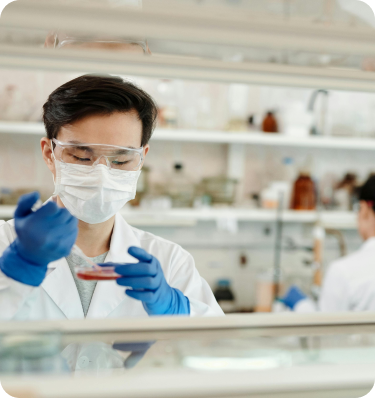The PKD Foundation is interested in fostering research in the areas relevant to PKD with the goal of furthering our understanding of the physiological, biochemical, molecular and genetic mechanisms of this disease. This fellowship is designed to facilitate young investigators to obtain significant research experience as they initiate careers in PKD research. This program is intended to assure the continuity over time of outstanding investigators committed to the study of PKD.
Our fellowship grant program recognizes early-career scientists whose achievements and potential identify them as rising stars – the next generation of scientific leaders in PKD research. Our fellowships aim to attract promising trainees who will obtain significant research experience as they initiate and – we hope – spend long and productive careers in PKD research.
Timeline
Request for applications for fellowships are released in October with a January deadline. Recipients are notified in May, and the grant cycle begins on July 1 of the same year. Each recipient receives $70,000 a year for two years.
Eligibility
Applicant must have a Ph.D. or M.D. degree. This application is for a training position and requires a mentor who is knowledgeable about PKD and the project. Applicants must describe a clear career path and explain how this project is relevant to that path. A mentor may sponsor only one applicant.
Review process
Applicants are evaluated by our Grants Review Committee, comprised of members of the Scientific Advisory Panel. Applications are given a priority score based on the scientific merit of the project, its relevance to PKD research, and the training potential of the applicant. Funding of awards is based on the priority score, the recommendations of the Grants Review Committee and the availability of funds.
Meet the Current Fellowship Recipients
The principal goal of our research grant program is the development of clinical interventions for the treatment of PKD. This program funds basic laboratory research aimed at increasing understanding of the genetic and pathological processes involved in PKD as well as research with an obvious or direct potential to accelerate the development of potential therapies. Epidemiologic research proposals utilizing existing data resources to develop new statistical methodologies or to test hypotheses are also welcome.
Timeline
Request for pre-applications for grants are released in June, with invitations for full applications released in October, and an ultimate proposal deadline in mid January. Each grant recipient receives $120,000 per year for two years. After the first year of funding, grant recipients submit updates on the progress of their research. After the final year of funding, grant recipients submit the results of their studies in a final report.
Eligibility
Applicants must have an M.D., Ph.D. or equivalent degree and hold a faculty appointment at the institution where the research will be conducted. Applicants need not be United States citizens.
Young Investigator Award
An optional third year of support will be available to a young investigator(s). The recipient(s) will be selected from meritorious grant applications to support the transition of a junior scientist to an independent investigator.
Interested applicants will need to clearly outline their interest, eligibility, and scope of research for this third year of funding.
Review process
The PKD Foundation strives to be transparent related to our decision-making processes. We rely on our grant review committees, who develop recommendations for funding, as well as the process we use as a Foundation to make funding decisions. Learn more here.
Meet the current Grant Recipients




